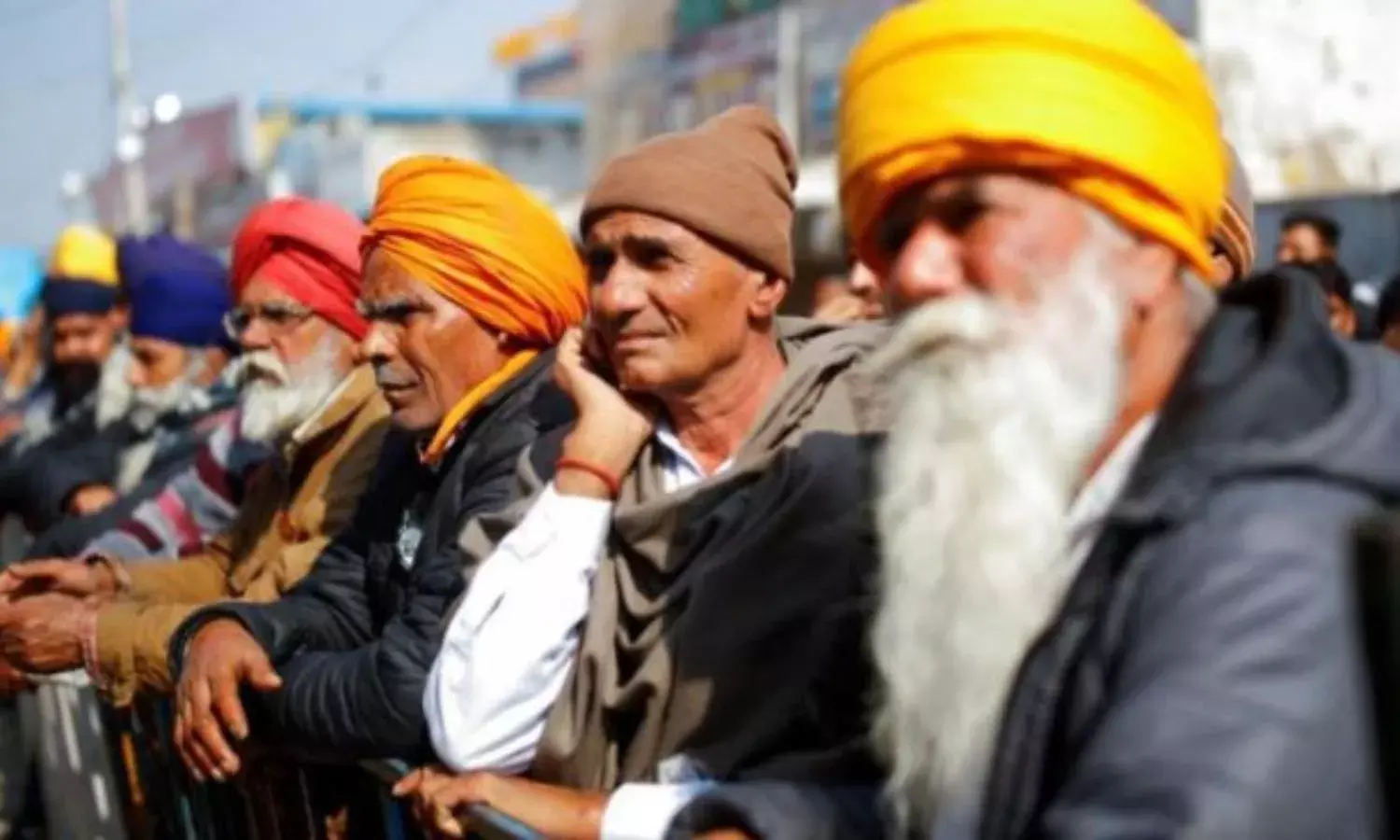‘Horizon of the Farmers Movement Will Expand in Days to Come’
Demonstrations on Aug 9

The farmers’ struggle against the three ‘pro-corporate’ laws is all set for expansion in the days to come. Those agitating at the capital borders as well as those continuing protests and mobilisations across villages and mofussil towns have chalked out a series of programmes leading up to Independence Day.
Samyukta Kisan Morcha, the umbrella organization spearheading the farmers’ movement, has decided to observe a Kisan Mazdoor Azadi Sangram Diwas on August 15 - a Farmers and Workers Freedom Struggle Day - where marches on motorcycles, carts, tractors and other vehicles bearing the tricolour will be conducted in blocks and tehsils countrywide.
Similar marches and programmes will mark the protest sites around Delhi.
The SKM has also announced that official flag hoisting ceremonies will not be opposed anywhere.
The programme has been decentralised in a big way to ensure that no untoward event like at the Red Fort on January 26 is repeated. Farmer leaders have made it clear that theirs is a peaceful struggle, and will continue to be so until they achieve their goal of repealing the three laws and a minimum support price legal guarantee.
According to All India Kisan Sabha leader Inderjeet, “The anniversary of the Quit India Movement that falls on August 9 will be observed with a second women’s special session of the Kisan Sansad, the parallel Parliament session being held by the farmers at Jantar Mantar.
“The main theme for the day will be Corporate Kheti Chhoro and Modi Gaddi Chhoro” - get rid of corporate farming and seek the resignation of the Modi-led Bharatiya Janata Party government at the centre.
The movement, particularly farmers from Haryana and western Uttar Pradesh, have also witnessed the annual Kanwar Yatra in a new form. This annual event generally sees male youth from every household going to Haridwar either on foot or on small vehicles in the Hindu calendar month of Saavan to bring holy water to their homes.
This time round the same youth took soil from their fields and water from their respective villages to the farmers sitting at the agitation sites around Delhi.
“This initiative by hundreds of rural youth to bring soil and water of their respective villages to the borders daily on the pattern of Kanwar was a welcome gesture of solidarity,” Inderjeet told The Citizen.
He further said that the traditional folk festival of Teej that falls on August 10 will be celebrated as a festival of social harmony at the border protest sites and toll plazas across states.
He said the parallel Parliament proceedings being conducted by 200 farmers going to Jantar Mantar daily will end with a no-confidence motion against the Union government where the Modi government will be asked to quit.
Farmers claim that the organising of a parallel Parliament session has been a major victory for them
“We have demonstrated how to claim our right to protest peacefully. They could not prevent us from holding parallel sittings. Imagine representatives of the farming community and the masses sitting just 500 metres away [from Parliament House] and carrying out proceedings on the real issues concerning the masses of this vast country.
“It is like breathing down their necks and demonstrating the power of the people. We have demonstrated what we can achieve without any violence or any act that would damage the movement in any way,” said Narayan Dutt of Inquilabi Kendra Punjab.
Dutt said it is a sequel to the strong message made felt by the Farmers’ Long March to Mumbai a couple years ago. Like those marchers the ongoing struggle has earned worldwide attention and support.
“Previously we used to see tractor marches in countries like France. We have drawn a lot of power from such events. Today our struggle has got international recognition. It has sent out a strong message to all the leaders in various countries eyeing the usurping of farm lands that such moves will be resisted by the farming community and the common masses,” said Dutt.
He said the propaganda by various forces claiming this is an agitation of only Punjab, Haryana and Uttar Pradesh has fallen flat.
“When you have thousands of farmers supporting the movement from states like Tamil Nadu and others, it is clear that it is a pan-India movement. We don’t speak off the cuff when we say that we can continue the movement at least till 2024.”
The movement is finding strong resonance even in small states like Himachal Pradesh. The state known for its fruit and vegetable production has witnessed a series of protests in places like Solan, Shimla, Theog and elsewhere on the issue of losses incurred by farmers producing crops like tomato and cauliflower because of substandard seeds supplied by various private businesses.
Farmers in the state have been submitting memorandums demanding that the concerned authorities take action against these companies and get them to compensate their losses.
Following a visit to the villages around Theog on July 31, Kisan Sabha leader Dr Kuldeep Tanwar after attending a meeting of farmers in Dahna village said the off-season cauliflower grown in the belt fetches farmers a good price but this time round six months of effort have gone down the drain.
The farmers are not buying the companies’ argument that the losses are on account of climate change.
Various organisations are now gearing up for demonstrations planned on August 9 at various places in the state. Kisan Sangharsh Samiti convenor Sushil Chauhan has stated that “memorandums addressed both to Prime Minister Narendra Modi and Chief Minister Jai Ram Thakur will be submitted listing the farmers’ various demands.”
Narayan Dutt told The Citizen, “We know that merely holding a parallel session of the Parliament is not enough. You will see the horizon of this movement expanding in the days to come.”



